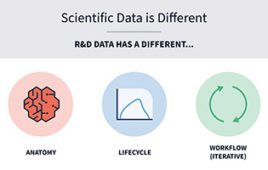Council on Competitiveness Works to Increase Access to HPC Resources
The Council on Competitiveness is proud to announce that a one-year pilot program called the hpc4energy incubator made its debut at the Council’s Technology Leadership and Strategy Initiative (TLSI) workshop in Annapolis, MD on October 24, 2011. Developed by the Lawrence Livermore National Laboratory (LLNL), the aim of the program is to increase the rate at which energy technology is being developed — through the power of HPC — by businesses of all sizes for the purpose of boosting U.S. competitiveness in the global marketplace.
“Modeling, simulation, and massive data analysis are the next, huge, game-changing drivers for innovation,” says Deborah L. Wince-Smith, president and CEO of the Council on Competitiveness. “HPC lets companies collapse their design and prototyping process. That’s important for advanced industrial countries like the United States that cannot compete on wages and need to be at the frontier of discovery.”
The hpc4energy incubator program addresses the needs and benefits identified in industry case studies conducted over the past couple of years by the Council on Competitiveness on the ways in which the U.S. manufacturing sector may become more competitive. The program was conceived during the National Summit on Advancing Clean Energy Technologies held in Washington D.C. in May of 2011 and co-sponsored by LLNL, the Bipartisan Policy Center, the Howard Baker Forum, the Council of Competitiveness, and other partners.
LLNL is confident of the gains they expect from teaming industry with the scientific and computing resources at national laboratories and is looking for proposals that address at least one of the critical clean energy areas outlined in the National Summit report. These areas are: Building Energy Efficiency; Carbon Capture, Utilization, and Sequestration; Liquid Fuels Combustion; Nuclear Energy; and Smart Grid, Power Storage, and Renewable Energy Integration. To be considered, submissions must benefit from the attention of HPC resources and address a critical problem to which the solution would advance clean energy technology.
Businesses with the winning proposals will work alongside LLNL scientists and learn how to employ the laboratory’s HPC resources to discover solutions to their proposed problems.
“In an era of fierce global competition in the clean energy sector, high performance computing can stimulate the rapid advancement of U.S. clean energy technologies,” says Tomas Diaz de la Rubia, LLNL Deputy Director for Science & Technology and co-chair of the Council on Competitiveness’ HPC Advisory Committee, who announced the pilot program at the Council’s 6th Technology Leadership and Strategy Initiative Dialogue, hosted by the U.S. Naval Academy in Annapolis, MD.
All interested potential collaborators should submit to LLNL a single-page letter of intent providing a broad summary of the proposal. Letters of intent should be sent to [email protected] before 5:00 p.m. Pacific Standard Time (PST) on 10 December, 2011.
For more information, see www.hpc4energy.org.
About The Council On Competitiveness
The Council on Competitiveness was founded in 1986 during a time when the United States was facing its most dire economic challenges since the end of World War II. The country had slid from being the world’s largest creditor to its largest debtor, its position as a global leader in technology and innovation was declining and American industries were losing market share to international competitors. To meet these mounting challenges, two-dozen industrial, university, and labor leaders joined together to found the Council, a forum for elevating national competitiveness to the forefront of national consciousness.
The 21st century poses new challenges to American competitiveness — globalization, high-speed communications, enterprise resilience, and energy sustainability issues are forcing organizations at all levels to rethink and redefine how U.S. companies will remain competitive. After two decades, the Council on Competitiveness continues to set an action agenda to drive U.S. productivity and leadership in world markets and to raise the standard of living for all Americans.




